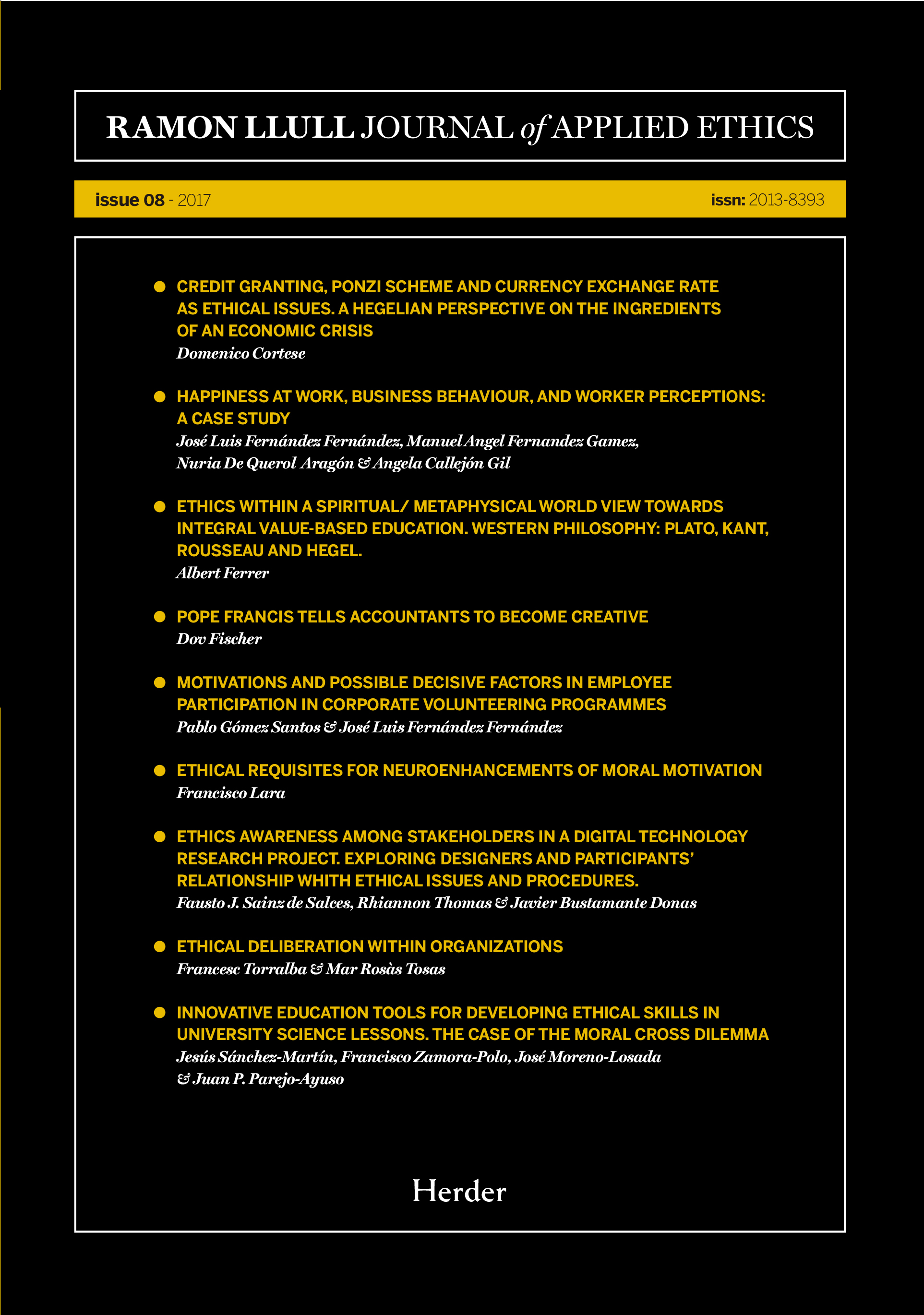Ethical deliberation within organizations
Article Sidebar

Main Article Content
Note: This paper is a version of a chapter of a previous book by Francesc Torralba, titled Destriar el bé del mal. L'art de trobar criteris ètics en la vida diària (Pagès Editors, 2013).
Our aim is to identify the conditions of possibility of a successfulprocess of ethical deliberation. To achieve this goal, we turn toAristotle’s definition of ‘deliberation’ as a rational process that seeks tomake decisions (as opposed to other types of rational processes that aimto find out or achieve a truth). We focus also on the need of incorporationof the other’s perspective in what Rawls labels ‘overlapping consensus’;on Lafont’s three requirements of deliberation; and on Ricoeur’s foursteps to fully engage with one’s commitments through action. In orderto complement the picture of deliberation we get when reading theseauthors in conjunction, we add what in our eyes constitute two majorconditions often neglected. We then point out the shortcomings of twomanifestations of the current interest in the successful processes of deliberation.Firstly, we address ethics committees. Given that their primaryconcern is precisely ethics, they should be –and often are– the organizationswhich more enthusiastically embrace and promote ethical processesof deliberation. Yet they tend to fail in some respects, which wepoint out. Secondly, we confront the contradictions surrounding therecent proliferation of codes of ethics and suggest how their value couldbe maximized.
Article Details
Most read articles by the same author(s)
- Antonio Argandoña, Norbert Bilbeny, Victòria Camps, Miquel Calsina, Àngel Castiñeira, Cristian Palazzi, Ferran Requejo, Raimon Ribera, Begoña Román, Ferran Sàez, Miquel Seguró, Francesc Torralba, Josep Maria Vallès, Code of ethics for politicians , Ramon Llull Journal of Applied Ethics: No. 3 (2012): Issue 3
- Mar Rosàs Tosas, Political Emotions. Why Love Matters for Justice (Martha C. Nussbaum) , Ramon Llull Journal of Applied Ethics: No. 6 (2015): Issue 6
- Magdalena Bosch, Francesc Torralba, Carla Gràcia, Aristotle and spiritual capital , Ramon Llull Journal of Applied Ethics: No. 4 (2013)
- Francesc Torralba, Cristian Palazzi, Decision-making in organisations, according to the aristotelian model , Ramon Llull Journal of Applied Ethics: No. 1 (2010): Issue 1
- Mar Rosàs Tosas, PROFESSIONAL SECRET IN THE PRACTICE OF SOCIAL WORK AND SOCIAL EDUCATION1: A CORNERSTONE OF DEMOCRACY WITH A FOCUS ON CATALAN AND SPANISH CONTEXTS (p. 91-112) , Ramon Llull Journal of Applied Ethics: No. 5 (2014): Issue 5
- Francesc Torralba, Cristian Palazzi, Miquel Seguró, Coherence as a source of authority in organizations , Ramon Llull Journal of Applied Ethics: No. 2 (2011): Issue 2
- Francesc Torralba, Diéguez, Antonio (2021). Cuerpos inadecuados. El desafío transhumanista a la filosofía [Inadequate bodies. The transhumanist challenge to philosophy] (Herder) , Ramon Llull Journal of Applied Ethics: No. 15 (2024): Issue 15